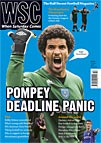 League restructuring in Italy has been discussed for several years but it is now coming to fruition. Paul Virgo reports
League restructuring in Italy has been discussed for several years but it is now coming to fruition. Paul Virgo reports
After a long fight to save their marriage, Serie B finally accepted it had irreconcilably broken down in August and agreed to an amicable divorce from the Italian top flight. Serie A chairmen had been threatening to walk out for years, as they looked on at the Premier League’s success with envy, only to end up half-heartedly agreeing to give it another try. But they showed they meant business this time when they appointed Maurizio Beretta, an executive from outside football, to run the top flight as an independent entity from next year.
